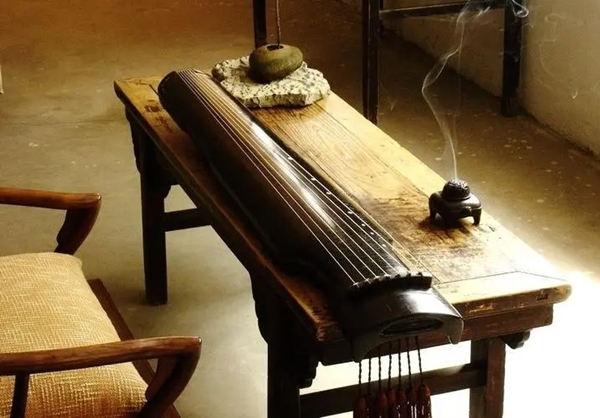Analysis of the bottleneck of Guqin self-study: challenges, misunderstandings and ice-breaking strategies
Guqin, as an important carrier of ancient Chinese traditional music, has attracted the attention of many lovers with its profound connotation and unique artistic charm. However, in the process of self-learning guqin, many people may encounter various difficulties, difficult to master this art. This paper will deeply explore the main reasons for the failure of Guqin self-study, and put forward specific solutions.

Reason 1: Lack of basic knowledge
Guqin learning is not only a simple fingering and music score memorization, but also includes a deep understanding of melody, guqin structure, music theory and classical cultural background. The lack of these basic knowledge may lead to the learners' inability to accurately understand the emotional expression and technical points of the music.
Corresponding methods: At the beginning of self-study, we should systematically learn the basic knowledge of guqin, understand the structure and sound principle of guqin, learn the pentatonic scale and tone system of Guqin, and strengthen the research on classical culture and the background of qin music.
Reason 2: Improper selection of teaching resources
Due to the rich and diverse network resources, self-learners often find it difficult to distinguish the quality of teaching content. If they choose teaching materials that are not suitable for their own level or blindly follow teaching methods that do not meet the standards, their learning efficiency may be low.
Corresponding methods: Select authoritative and systematic tutorials, follow the teaching videos or books recorded by experienced teachers, start from the basic fingering, and gradually increase the difficulty. At the same time, participate in online and offline communication communities to get timely feedback and guidance.
Reason 3: Poor practice methods and habits
Guqin learning emphasizes persistence and patience. Many self-learners may make slow or even stagnant progress due to unscientific practice methods, such as insufficient daily practice time, lack of reasonable planning, or neglect of solid training of basic skills.
Corresponding methods: Establish a scientific and reasonable practice plan, adhere to quantitative practice every day, from basic fingering, scale practice to repertoire learning, step by step. At the same time, develop good practice habits, pay attention to the standardization of body posture and movement.
Reason four: Lack of actual performance and communication
Guqin music is very particular about the corresponding heart and hand and emotional expression. When you study alone, you may not be able to intuitively feel the resonance of the music and emotions, and lack of communication and interaction, and it is easy to fall into the situation of working behind closed doors.
Corresponding methods: Seek opportunities to participate in Guqin seminars and other activities, exchange ideas with other guqin friends, observe the performance of professional luthiers on the spot, learn from the experience, and exercise the ability of live performance.
In short, although there are many difficulties in the process of Guqin self-study, as long as the crux of the problem is identified, targeted methods are adopted, supplemented by persistent efforts, it is entirely possible for self-scholars to overcome numerous obstacles and set foot on the road to success in the temple of Guqin art.
 渝公网安备 50010702504639号
渝公网安备 50010702504639号